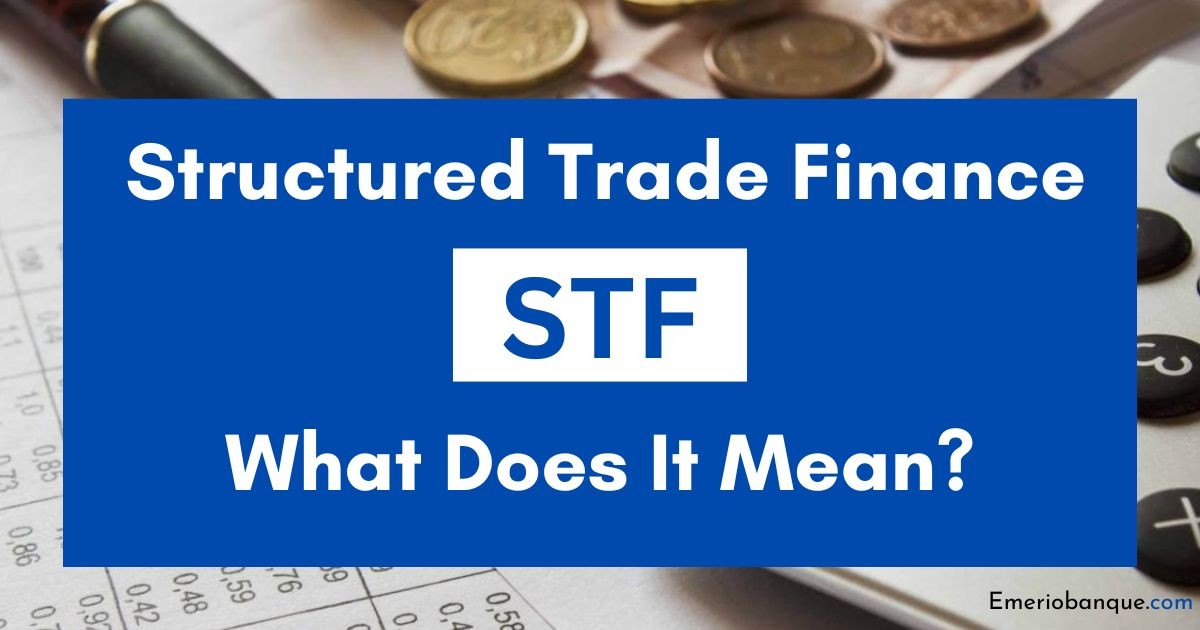Structured Trade Finance - What Does It Mean?

When it comes to financing a transaction, there are a variety of financial instruments available in the market including mortgages or overdrafts which consider the creditworthiness of the borrower.
However, there are borrowers in the market with unique financing requirements, demanding financing instruments accordingly. In this blog, we will discuss what structured trade finance is and how it benefits borrowers. Keep reading:
What is Structured Trade finance?
1. Structured trade finance is a type of finance specifically designed to meet the unique or complicated financial needs of large corporations that are unsatisfied with traditional/conventional financial products.2. This type of trade finance is generally utilized in relation to high-valued cross-border trade transactions and covers a wide range of financial products & services to match the complex finance requirements of large organizations.
3. Structured trade finance is typically designed for large-scale corporations that have highly specified financing requirements that the existing financial instruments are unable to meet.
4. It is the most suitable option when the standard loans cannot cover the funding needs of an organization.
Significance and Benefits of Structured Finance
As mentioned above, structured finance is a type of finance designed to cater to the financial needs of large corporations.1. Due to the substantial finance needs of corporations, structured finance products aren't offered by traditional lenders while borrowers with less financing requirements often access other financial instruments such as Letters of Credit, other Lending solutions, etc.
2. Since structured finance requires a major capital injection into an organization, these products are always non-transferable, ie. one cannot exchange them between various types of debts in the same way as a standard loan.
3. Various corporations, governments, and financial intermediaries are popularly using Structured trade finance to manage risks, expand business reach, and develop financial markets.
Examples of Structured Finance Products
When a conventional or standard loan is not enough to cover the complex funding requirements of a corporation, a number of structured finance products are offered.Recommended Read: Import Finance and Its Types
1. Collateralized bond obligations (CBOs), collateralized debt obligations (CDOs), synthetic financial instruments, collateralized mortgage obligations (CMOs), hybrid securities, and credit default swaps (CDSs) are common examples of structured finance instruments.
2. Top-notch security is applied through securitization. Securitization is a process of building financial instruments by combining a group of financial assets and then selling those assets to investors. It promotes liquidity by enabling borrowers to convert assets into a form that can be easier bought and sold on the financial markets.
3. Mortgage-backed securities (MBS) are the most popular of securitization as mortgages can be grouped into one large pool, enabling the issuer to divide the pool into parts.
Different Types of Structured Financing
There are several types of structured trade finance instruments such as:Asset-backed Securities
It is a type of financial investment that is collateralized by an underlying group of assets - typically ones that generate cash flows from debt, such as loans, etc.Mortgage-backed securities
These are also asset-backed securities but secured by a collection of mortgage assets bought by the issuing bank. It further has two types:1. Residential mortgage-backed
2. Commercial mortgage-backed
Collateralized mortgage obligations (CMO)
It refers to a type of mortgage-backed instrument that contains a group of mortgages bundled together and sold as an investment.Collateralized Debt Obligations
It is a complex structured finance product that is backed by a pool of loans and other assets and sold to investors.Recommended Read: Export Finance - Types And Why It Is Required
Collateralized fund obligation
This type of financial instrument protects the private equity fund and assets that are associated with hedge funds.Insurance-linked securities
These types of instruments transfer the risks associated with losses in insurance due to unfavorable events.Conclusion
Now you know that structured trade finance products are meant to fulfill the complex financial needs of large corporations usually unmet with traditional financial instruments. In recent years, trade finance service coupled with the latest advancements in technology are considered as prime reasons for the improved volumes of international trade.
Related Read: Technologies And Trends Reshaping The Future of Global Trade






